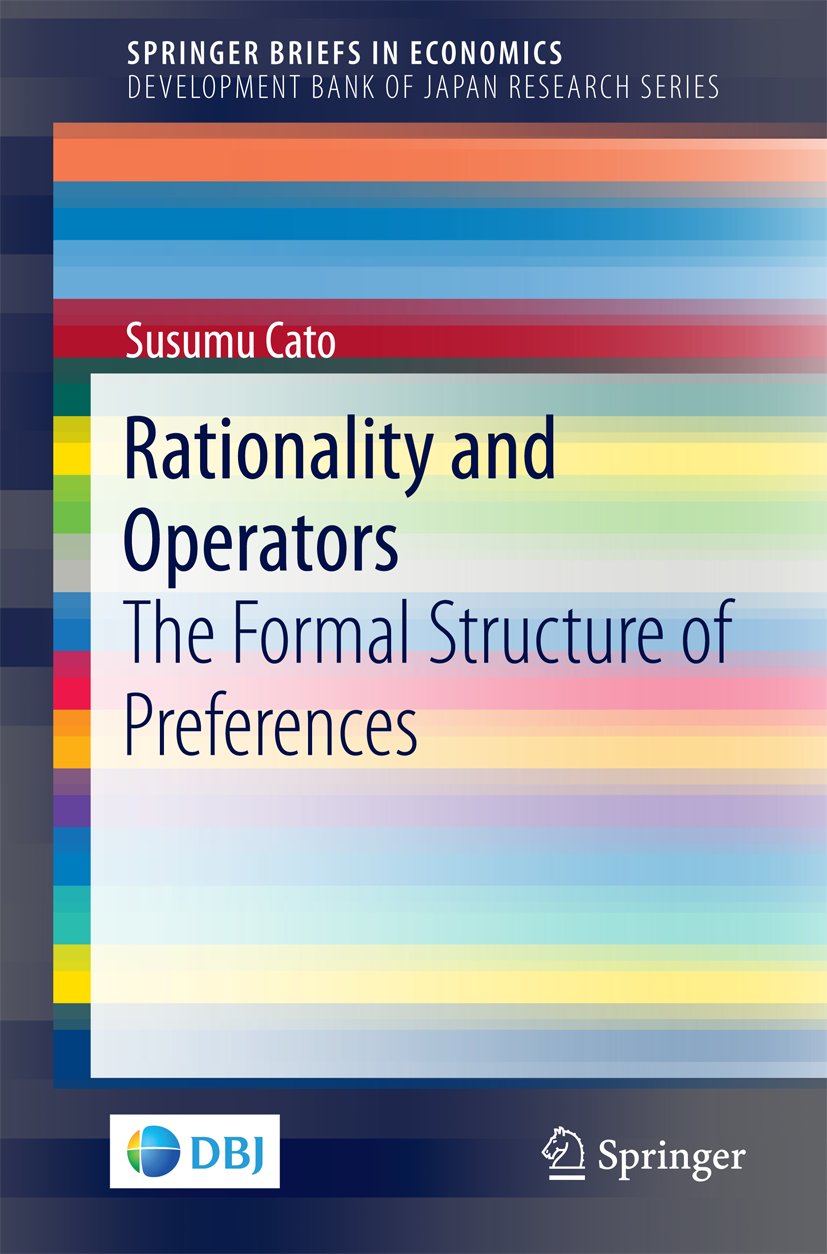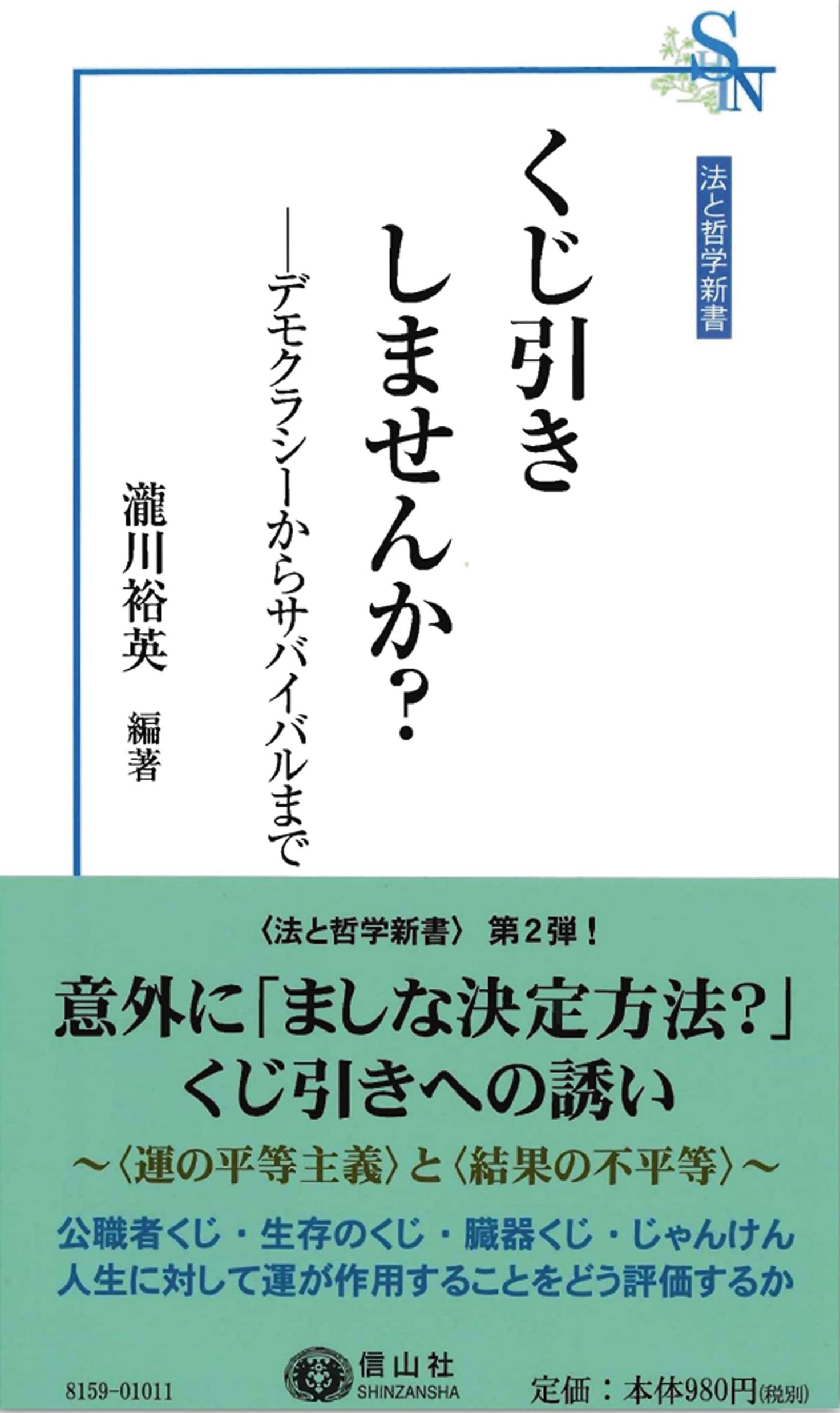
Title
Springer Briefs in Economics: Development Bank of Japan Research Series Rationality and Operators The Formal Structure of Preferences
Size
124 pages, softcover
Language
English
Released
August 24, 2016
ISBN
978-981-10-1895-4
Published by
Springer Singapore
Book Info
See Book Availability at Library
Japanese Page
What is rationality? That is one of the most important problems in social sciences and axiological theories. This small monograph addresses this topic in depth. Notably, values and preferences are necessary in order to compare states of affairs, which are consequences of individual or social choices. A powerful and common analytical tool for comparing states is known as a binary relation. Binary relations allow us to express mathematically how two things or objects are related. A useful class of binary relations is that of preference relations or desirability relations. Under a particular preference, one can have a statement like this: "State X is preferred to state Y." This describes a relationship between X and Y. Under the desirability relation, one can have: "State X is more desirable than state Y." Moreover, social relations, such as ownership and family relations, can also be formalized by binary relations.
Once preference or desirability is expressed in terms of binary relations, rationality can be understood more effectively. For example, the requirement of transitivity for a binary relation is expressed as follows: "If state X is preferred to state Y, and state Y is preferred to state Z, then X is preferred to Z." Transitivity can be regarded as a property of rationality. In addition to transitivity, various other concepts of rationality can be formalized by means of binary relations. Moreover, individual and social choices can also be understood as procedures that pick up the most preferable or desirable among the feasible states of affairs. This essentially implies that a correspondence between “betterness” and “goodness” is established.
The monograph starts by using operators to formalize the properties of the various binary relations in the context of preferences and values. Formally, an operator is a mapping that assigns a binary relation to one or more binary relations. Through the process of defining and analyzing various operators over binary relations, one can understand the implications and limitations of crucial issues associated with preferences and values in the social sciences and axiological theories. This seems essential in order to address the problem of the connection between individual values and societal values (or moral values). A formal analysis of rationality and normativity, as attempted in this book, will shed some light on how social science and axiology can be plausibly synthesized.
(Written by CATO Susumu, Associate Professor, Institute of Social Science / 2023)
Table of Contents
Introduction, Pages 1-10
Preferences and Operators, Pages 11-34
Rationality and Operators, Pages 35-68
Operations Over the Set of Binary Relations, Pages 69-88
Application to Welfare Economics, Pages 89-109
Conclusion: Beyond Ordinal Operators, Pages 111-119
Back Matter, Pages 121-124
Related Info
By Gianni Bosi (Mathematical Reviews July 2019)



 Find a book
Find a book


 eBook
eBook

